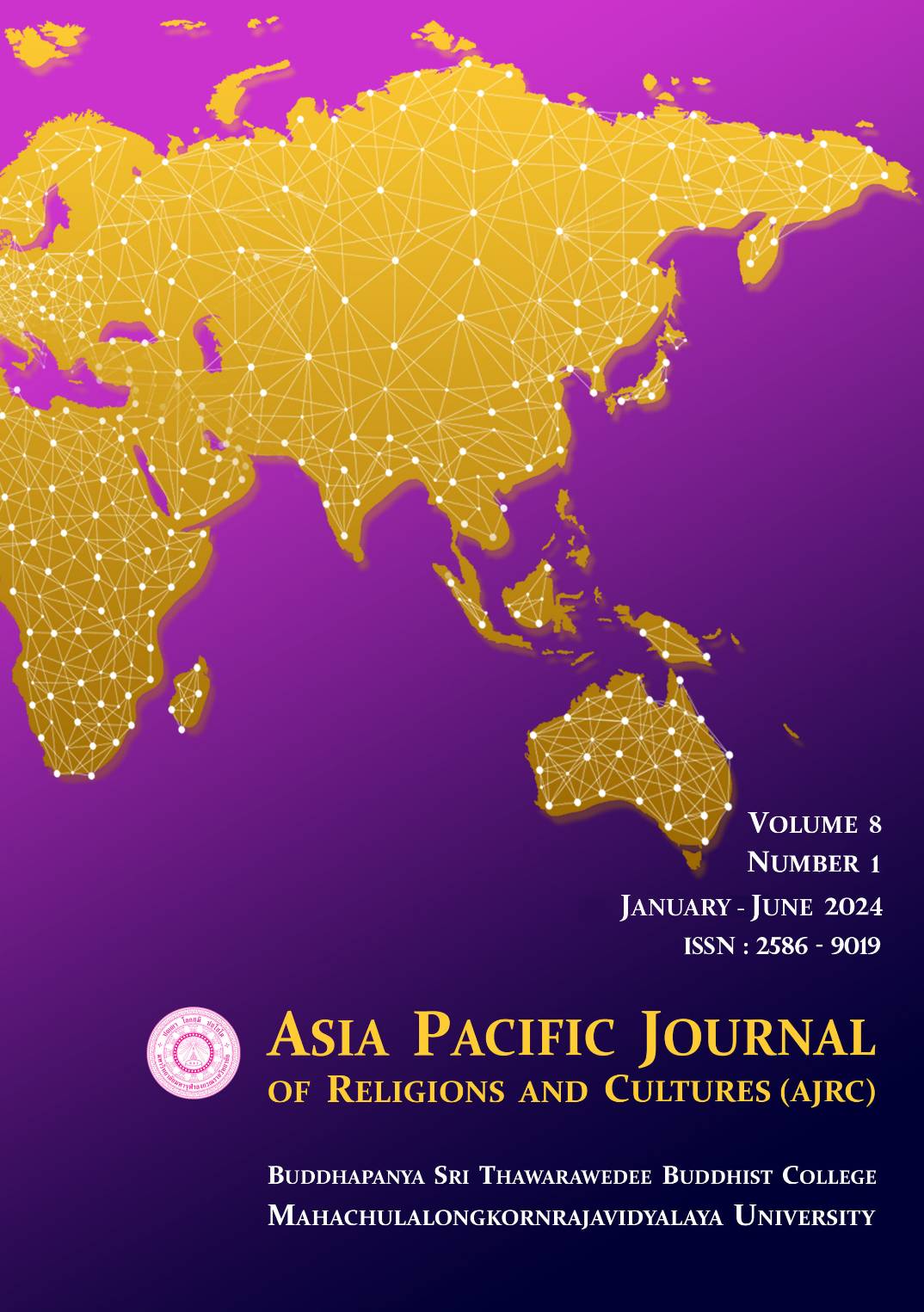Study on the Influencing Factors of Counselor Studio Construction Strategies in Shandong Engineering Vocational and Technical University
Main Article Content
Abstract
The objectives of the study were: 1) To explore will evaluation and incentive mechanism affects the counselor studio construction strategies in Shandong Engineering Vocational and Technical University; 2) To explore will platform building affects the counselor studio construction strategies in Shandong Engineering Vocational and Technical University; 3) To explore will resource sharing affects the counselor studio construction strategies in Shandong Engineering Vocational and Technical University; 4) To explore will career development affects the counselor studio construction strategies in Shandong Engineering Vocational and Technical University.
This study adopted a quantitative research method. In this study, a total of 378 questionnaires were distributed, with 325 valid questionnaires and the validity rate was 85.98%. The population was the instructors of Shandong Engineering Vocational and Technical University. Combined with cognitive evaluation theory, this paper found that: 1)Evaluation and incentive mechanism has a significant positive effect on counselor studio construction strategies in Shandong Engineering Vocational and Technical University; 2)Platform building has a significant positive effect on counselor studio construction strategies in Shandong Engineering Vocational and Technical University; 3)Resource Sharing has a significant positive effect on counselor studio construction strategies in Shandong Engineering Vocational and Technical University; 4)Career development has a significant positive effect on counselor studio construction strategies in Shandong Engineering Vocational and Technical University. Recommendations for counselor studio construction strategies should focus on the following aspects: 1) Optimizing evaluation and incentive mechanisms; 2) Innovative platform-building models; 3) Strengthen Resource Sharing; 4) Strengthen the development of information technology teams.
Article Details

This work is licensed under a Creative Commons Attribution-NonCommercial-NoDerivatives 4.0 International License.
References
Alves, A., Conde, R., & Pablo, J. (2021). Development of a training program for higher education counselor teachers. Ninth International Conference on Technological Ecosystems for Enhancing Multiculturality (TEEM’21), 33(22).
Chen, B. (2022). Study on the construction path of qualifications and competences for political counselors of higher education institutions. Open Journal of Social Sciences, 10(01), 163–169.
Creed, P. A., & Hughes, T. (2017). Career development strategies as moderators between career compromise and career outcomes in emerging adults. Journal of Career Development, 40(2), 146–163.
Dedmond, R., & Hufziger, L. (2019). Career education and career guidance: Strategies for implementing career development. Journal of Career Development, 15(4), 257–264.
Dillon, A., Austin, J., McGhee, K., & Watson, M. (2022). The impact of a “psychiatric genetics for genetic counselors” workshop on genetic counselor attendees: An exploratory study. American Journal of Medical Genetics Part B: Neuropsychiatric Genetics, 189(3-4), 108–115.
Frenk, J., Chen, L., Bhutta, Z. A., Cohen, J., Crisp, N., Evans, T., Fineberg, H., Garcia, P., Ke, Y., Kelley, P., Kistnasamy, B., Meleis, A., Naylor, D., Pablos-Mendez, A., Reddy, S., Scrimshaw, S., Sepulveda, J., Serwadda, D., & Zurayk, H. (2020). Health professionals for a new century: Transforming education to strengthen health systems in an interdependent world. The Lancet, 376(9756), 1923–1958.
Gideonse, T. K. (2015). Pride, shame, and the trouble with trying to be normal. Ethos, 43(4), 332–352.
Grzeda, M. M. (2019). Re‐conceptualizing career change: A career development perspective. Career Development International, 4(6), 305–311.
Hammond, R. (2018). Career education. Journal of Career Development, 4(4), 18–19.
Junker, S., Pömmer, M., & Traut-Mattausch, E. (2020). The impact of cognitive-behavioural stress management coaching on changes in cognitive appraisal and the stress response: A field experiment. Coaching: An International Journal of Theory, Research and Practice, 14(2), 1–18.
Lent, R. W., & Brown, S. D. (2013). Social cognitive model of career self-management: Toward a unifying view of adaptive career behavior across the life span. Journal of Counseling Psychology, 60(4), 557–568.
Lu, Y., Wu, Z., Chang, R., & Li, Y. (2017). Building information modeling (BIM) for green buildings: A critical review and future directions. Automation in Construction, 83(New York), 134–148. Sciencedirect.
Majeed, M., & Naseer, S. (2019). Is workplace bullying always perceived harmful? The cognitive appraisal theory of stress perspective. Asia Pacific Journal of Human Resources, 34(7).
Milsom, A., & Moran, K. (2015). From school counselor to counselor educator: A phenomenological study. Counselor Education and Supervision, 54(3), 203–220. https://doi.org/10.1002/ceas.12014.
Nicolosi, P., Ledet, E., Yang, S., Michalski, S., Freschi, B., O’Leary, E., Esplin, E. D., Nussbaum, R. L., & Sartor, O. (2019). Prevalence of Germline Variants in Prostate Cancer and Implications for Current Genetic Testing Guidelines. JAMA Oncology, 5(4), 523–528.
Olivas, M., & Li, C.-S. (2006). Understanding stressors of international students in higher education: What college counselors and personnel need to know. Journal of Instructional Psychology, 33(3), 217–222.
Plantinga, C. (2007). Cognitive film theory: An insider’s appraisal. Cinémas, 12(2), 15–37.
Santelices, M. V., Zarhi, M., Horn, C., Catalán, X., & Ibáñez, A. (2020). Information sources and transition to higher education: Students, teachers and school counselors’ perspectives. International Journal of EducationalResearch,103(7),101617.https://doi.org/10.1016/j.ijer.2020.101617.
Scheng, T. (2023). Ways to make use of digitization to build counselor studio efficiently. International Journal of New Developments in Education, 5(16).
So, J., Kuang, K., & Cho, H. (2015). Reexamining fear appeal models from cognitive appraisal theory and functional emotion theory perspectives. Communication Monographs, 83(1), 120–144.
Steger, M. F., Dik, B. J., & Duffy, R. D. (2012). Measuring meaningful work. Journal of Career Assessment, 20(3), 322–337.
Waibel-Duncan, M. K., & Sandler, H. M. (2002). Forensic anogenital exam interventions: Potential contributions of cognitive appraisal theory. Child Maltreatment, 7(1), 85–92.
Xie, R. (2019). Research on intelligent cloud laboratory management system based on internet of things technology. IEEE Explore.


